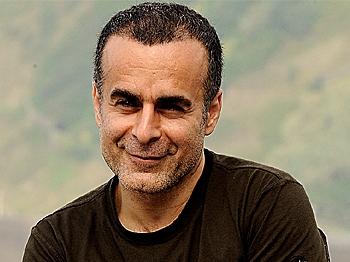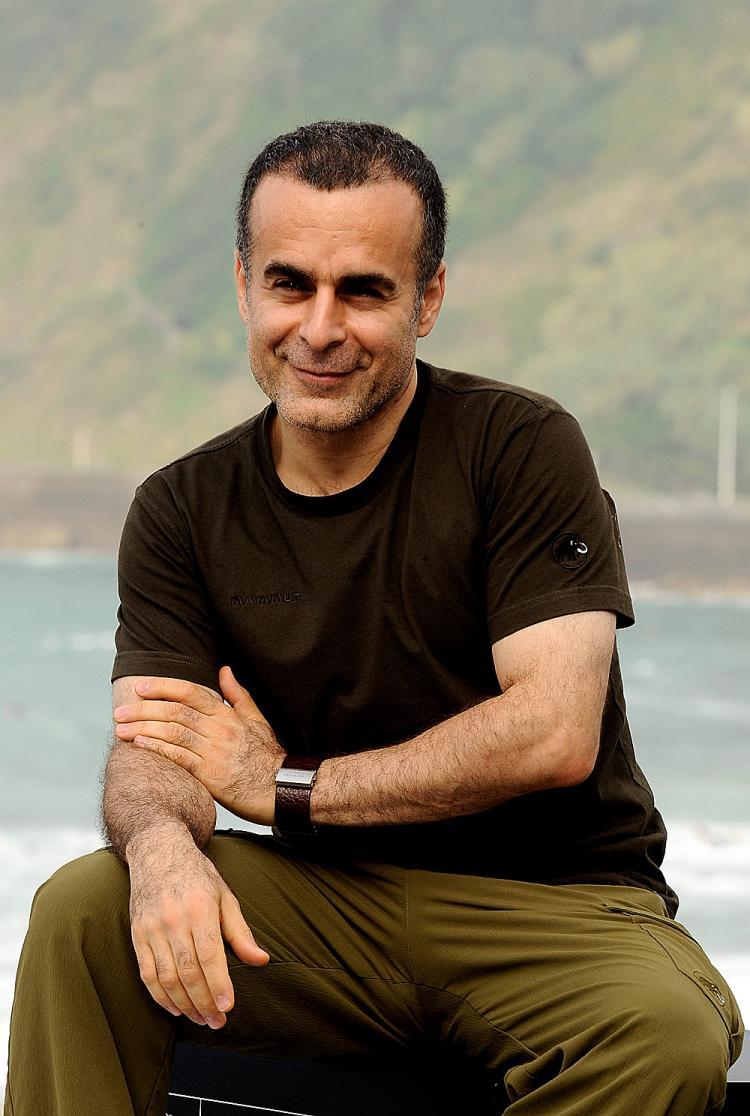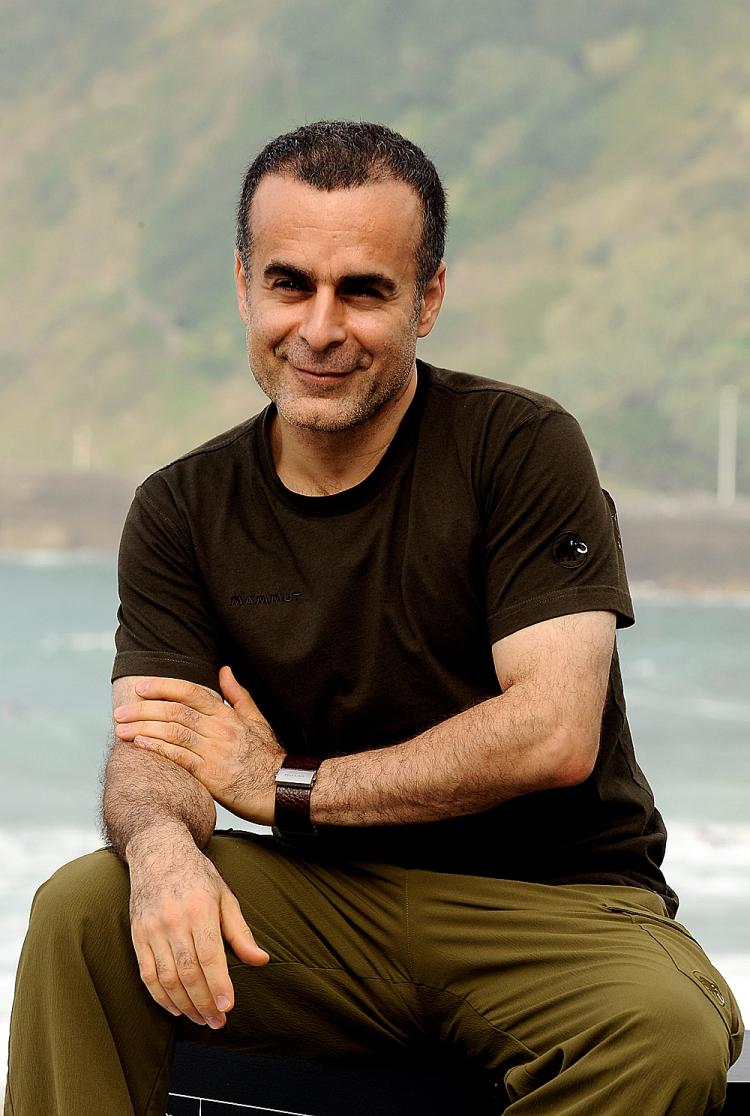Iranian filmmaker Bahman Ghobadi has made a number of Iranian films under difficult circumstances, yet the filming of No One Knows About Persian Cats was one like no other.
Ghobadi, a critically acclaimed Iranian Kurdish filmmaker who won high praise for his film Half Moon in 2006, is back with the re-release of his newest film about young Iranian musicians in Tehran.
The film subject and plot bridges the gap between fiction and reality, as the two main characters, Ashkhan and his fellow bandmate and girlfriend Negar, attempt to form a full-fledged band and flee Iran for London.
“I was in a rush to make this film, because my first actors wanted to leave the country,” said Ghobadi.
“They gave me a date, they had a concert in London, and said they will leave at that date, so I had to make the movie in 18 days!”
“But now that I look, if I go back to remake this movie, I would make it neither shorter nor longer, whatever it is, it is. I mean, that situation, it seemed as though the subject needed these conditions.”
The added level of tension, and tight film production time frame were amplified even more with Ghobadi’s attempt to film for the first time in the densely populated Iranian capital city of Tehran.
“I was a little nervous, I had stress, fear, all of these have been transferred to the film, even how the camera works has been transferred, in some instances the camera is shaking—we were fearful, because we were on a bike and had to make the film and go to another location. All factors helped in the production of this film.”
Ghobadi was introduced to Ashkhan and Negar through his musical tour guide, Babak Mirzakhani.
Mirzakhani led the director Ghobadi and introduced him to a number of the 3,000 bands in Iran when he met Ashkhan and Negar.
“After two weeks, Ashkan and Negar were among those who were supposed to be one of the bands that we pass, when I spoke to them I realized that their story is a very important one, and this would help us to see all the bands with the excuse of finding a band. So basically that’s where the idea came from, because they themselves were looking to form a band to go to London.
“I think only through covering this subject, this topic, this kind of music, could you show the real Iran, and this music gave me this opportunity, this chance, to go to Tehran in the city and find pictures corresponding to the lyrics from the guys, and I think you can show the real Tehran to the audience through music, and the structure that you see in my movie can show the real Tehran—busy, stressful, and full of tension.”
Ghobadi is considered one of the experimental filmmakers of Iran, yet he himself sees himself somewhat differently.
“I don’t see myself as a filmmaker right now. I am a window-maker, and by making a window I want to show a side of existence and today’s world to the audience.”
Persian Cat was banned in Iran. However, Ghobadi is no stranger to difficulties associated with the Iranian Regime.
His fiancé and the film’s producer is Roxanna Saberi, the well-known Iranian-American journalist who was imprisoned for over three months in Iran.
After a long process on the part of Ghobadi, Secretary of State Hillary Clinton, and several other key figures, such as Nobel Laureate Shirin Ebadi—Saberi was released.
Somewhat fittingly, Saberi was released several days before Persian Cats premiered at the 2009 Cannes Film Festival, where it earned a prestigious award.
Saberi is currently promoting her autobiographical account of her experiences in Iran while imprisoned, entitled Between Two Worlds.
Her well-known filmmaking fiancé could possibly be the director of a film adaption.
When asked about the possibility, Ghobadi said “We hope so!”
Ghobadi, a critically acclaimed Iranian Kurdish filmmaker who won high praise for his film Half Moon in 2006, is back with the re-release of his newest film about young Iranian musicians in Tehran.
The film subject and plot bridges the gap between fiction and reality, as the two main characters, Ashkhan and his fellow bandmate and girlfriend Negar, attempt to form a full-fledged band and flee Iran for London.
“I was in a rush to make this film, because my first actors wanted to leave the country,” said Ghobadi.
“They gave me a date, they had a concert in London, and said they will leave at that date, so I had to make the movie in 18 days!”
“But now that I look, if I go back to remake this movie, I would make it neither shorter nor longer, whatever it is, it is. I mean, that situation, it seemed as though the subject needed these conditions.”
The added level of tension, and tight film production time frame were amplified even more with Ghobadi’s attempt to film for the first time in the densely populated Iranian capital city of Tehran.
“I was a little nervous, I had stress, fear, all of these have been transferred to the film, even how the camera works has been transferred, in some instances the camera is shaking—we were fearful, because we were on a bike and had to make the film and go to another location. All factors helped in the production of this film.”
Ghobadi was introduced to Ashkhan and Negar through his musical tour guide, Babak Mirzakhani.
Mirzakhani led the director Ghobadi and introduced him to a number of the 3,000 bands in Iran when he met Ashkhan and Negar.
“After two weeks, Ashkan and Negar were among those who were supposed to be one of the bands that we pass, when I spoke to them I realized that their story is a very important one, and this would help us to see all the bands with the excuse of finding a band. So basically that’s where the idea came from, because they themselves were looking to form a band to go to London.
“I think only through covering this subject, this topic, this kind of music, could you show the real Iran, and this music gave me this opportunity, this chance, to go to Tehran in the city and find pictures corresponding to the lyrics from the guys, and I think you can show the real Tehran to the audience through music, and the structure that you see in my movie can show the real Tehran—busy, stressful, and full of tension.”
Ghobadi is considered one of the experimental filmmakers of Iran, yet he himself sees himself somewhat differently.
“I don’t see myself as a filmmaker right now. I am a window-maker, and by making a window I want to show a side of existence and today’s world to the audience.”
Persian Cat was banned in Iran. However, Ghobadi is no stranger to difficulties associated with the Iranian Regime.
His fiancé and the film’s producer is Roxanna Saberi, the well-known Iranian-American journalist who was imprisoned for over three months in Iran.
After a long process on the part of Ghobadi, Secretary of State Hillary Clinton, and several other key figures, such as Nobel Laureate Shirin Ebadi—Saberi was released.
Somewhat fittingly, Saberi was released several days before Persian Cats premiered at the 2009 Cannes Film Festival, where it earned a prestigious award.
Saberi is currently promoting her autobiographical account of her experiences in Iran while imprisoned, entitled Between Two Worlds.
Her well-known filmmaking fiancé could possibly be the director of a film adaption.
When asked about the possibility, Ghobadi said “We hope so!”






